The Second Engineer’s Checklist: How To Be An Indispensable Assistant On Recording Sessions
While it’s true that many large, multi-room recording studios are going the way of the dinosaur, and there are potentially fewer entry-level gigs at big studios to be had, for many audio pros, a big part of who they are as engineers stems from the valuable learning experiences that came during their tenure as second engineers.
Whether you’re trying to up your A2 game or still hustling for that first big break, here is a checklist of fool-proof ways to ensure you become a ballin’ (albeit obsessive-compulsive) second engineer:
The Second Engineer’s Checklist
In Advance of the Session:
• Cordially contact the main engineer in advance of the session and request any session info or documentation.
• Attempt to fill out an input list to completion before the session begins.
• (Without bombarding your very busy engineer/producer with too many questions) attempt to ascertain any and all possible preferences that you can set up in advance.
For instance: Ask for preferred monitors if you have multiple options, general mic placement starting points, DAW templates to load up, and a console layout to start with.
• Determine pertinent non-technical session details.
Perhaps the most important bit of information is knowing WHEN the session is. In Nashville, we call this the “downbeat”—the time that all personnel should be on location and recording begins, most often 10:00am, 2:00pm, or 6:00pm. Early is on-time, on-time is late, and late is unacceptable.
In addition to this, other valuable details may consist of number of players, their names, details on cartage, billing info, etc.,
On the Day of the Session:
• Hey, hygiene always helps. It’s not out of the realm of possibility for you to sit in a control room for 15 hours or more at a time. Do you want to be cooped up in a room with the stinky dude? Don’t be the stinky dude.
• Arrive in advance, ideally the evening or morning before the session starts and neatly run all mic lines, set up and place the mics, cue stations, music stands etc., for each player.
This is what properly run cables look like:
• Patch all signals and address phantom power needs.
• Neatly label the console and outboard gear. (Bonus points: If your engineer is comfortable with you doing so, kindly set all gear at a nominal recording level.)
This is what properly labeled gear looks like:
• Create a DAW template for the session and/or prepare your tape machine. This is what a decent DAW template looks like:
• Import any necessary pre-production tracks if applicable.
• Neatly label all headphone cue stations with necessary info. This is what a properly labeled headphone station looks like:
• Test each input, output and connected outboard gear with signal. (For extra points, check phase as well, with a “cricket” or phase popper.)
• Check talkbacks and if possible, prepare the cue mix in advance and make sure you have the ability to monitor the cue-mix in the control room.
• Make sure each music stand has pencil(s) and stand lights.
• Copy or print charts for the musicians.
During the Session
• Know your DAW or recording medium inside and out so you’re able to work as quickly and efficiently as possible.
• Make time markers for each section of the song. It is essential that you always know where you are in the song, and are prepared to locate to any given position in said song on demand.
• In every thing you do, proceed with a confident, and calm sense of urgency. Time is money, and studio time ain’t cheap, and neither should your skilled labor be. Don’t lollygag!
• Continue to check and keep cable runs as neat as possible while avoiding obstructing walkways at all costs.
• Make sure any preferred external source medium is patched and loaded—iPhone, computer, CD, USB, etc.,
• Backup all files regularly (Sync X Pro rocks for this! Don’t screw it up!!!! )
• Be prepared to take lunch orders, make coffee, mop the floor, and do food runs at a moment’s notice. There is absolutely no job too great or to small for you.
• It’s inevitable, if you’re fortunate enough to work in the studio, you’re going to run into technical difficulties. Troubleshooting can be a scary experience when the clock is ticking, so you must possess confidence in your abilities and come up with a clear plan that you can quickly and effectively execute on.
Picture yourself in a recording situation with 80+ orchestral players in a room. Consider the expense of hiring this many excellent studio musicians. Now imagine that your engineer’s favorite, and most essential microphone drops out. Your neck is on the line.
Are you prepared to remedy the situation and continue the recording process quickly? The answer should always be “Yes.” These are situations to think through in advance of your being in them.
• You’re welcome.
Summing it Up
The job of a good second engineer is taxing, non-stop, and sometimes goes without much thanks. But if you’re cut out for it, it’s also energizing, invigorating, and one of the best jobs in the entire world. It demands attention and pays dividends of inimitable experiences and lasting, memorable connections in return.
Remember, as demanding as it can get, there are many out there who would love to be in your shoes. So always make sure you use yours to go that extra mile.
Jasper LeMaster is a staff engineer at Ocean Way Studios in Nashville, TN who has extensive experience in both music and sound for film.
Please note: When you buy products through links on this page, we may earn an affiliate commission.







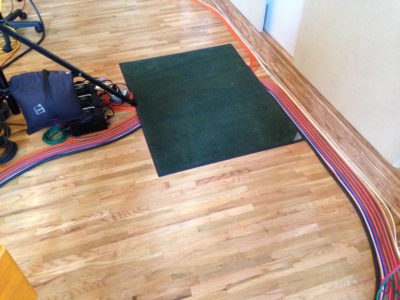
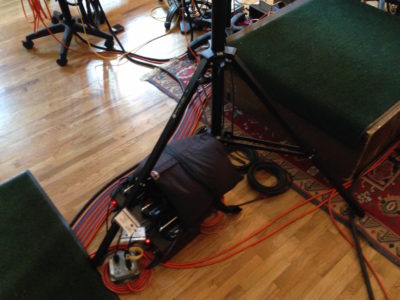
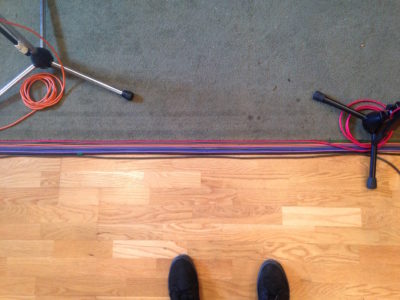
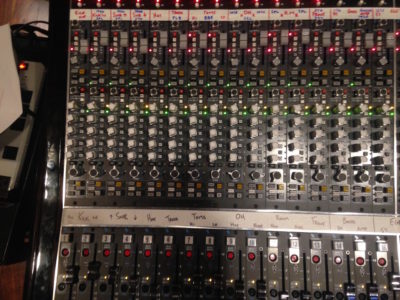
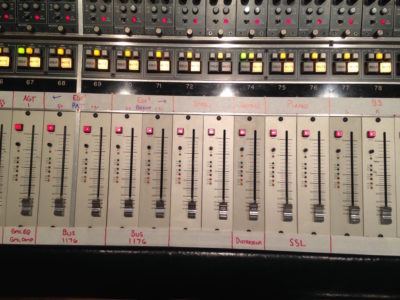





Peter
March 30, 2017 at 8:48 am (8 years ago)Great article, everything written is true and will help you to become a great and valued studio assistant. But one should think really hard if this is your ambition. Great assistant rarely become engineers because the studio would lose it’s great assistant! And while you are assisting your ass off you make little experience engineering (watching somebody else engineer is not the same as doing it, you can do that on youtube).
Gary
March 31, 2017 at 7:09 pm (8 years ago)3 thumbs up!
Skip
April 1, 2017 at 8:58 pm (8 years ago)Not really into the live or die work ethic. It’s kind of archaic. Like for some reason you need to be a slave just to get your foot in the door.
Fried Shipping
April 7, 2017 at 2:11 pm (8 years ago)I’d love to assist you on your next big session Skip! I don’t work very hard either 😛
Fried Shipping
April 7, 2017 at 2:11 pm (8 years ago)That’s true! I learned on youtube! Dropped out of Blackbird Academy and I’ve never been happier.
nanaandbump
May 26, 2017 at 5:21 am (8 years ago)Awesome article! I would suggest keeping at arms length an ample supply of sharpies, console tape, and any other weighted desktop items that may be used as projectiles. Having plenty of things to hurl at interns is essential for a well run session.